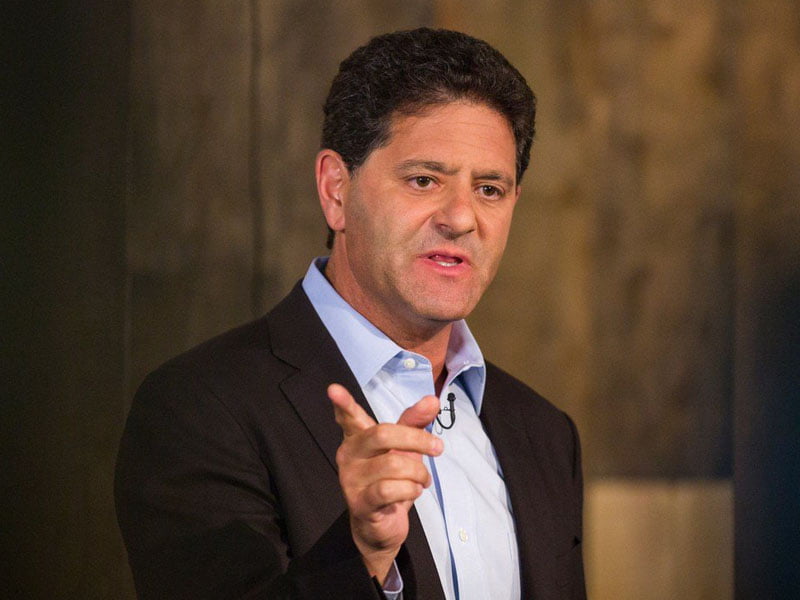Seattle-based billionaire entrepreneur, author and venture capitalist Nick Hanauer will deliver a keynote address to InnovationAus.com’s Civic Nation 2018, a tech and social policy forum in Sydney on September 27.
Mr Hanauer is a vocal and active grassroots campaigner in the US on social issues ranging from wealth inequality and the minimum wage, to the casualisation of the workforce and the hollowing out of the middle class.
He famously entered the tech industry in the 1990s as the first investor outside of family into online bookstore Amazon.com, but has built and sold many other business in the years since, including the aQuantive, acquired by Microsoft for $6.4 billion.

He has written extensively, including the now-infamous OpEd for Politico written as a memo “to my fellow zillionaires” in which he warned of a future filled with pitchforks. He is currently writing his third book on Capitalism Redefined in collaboration with Eric Beinhocker as an extension of a lengthy article written for the Democracy Journal.
Mr Hanauer joins WorldVision Australia chief advocate Tim Costello, renowned AI expert Toby Walsh, shadow digital economy minister Ed Husic, AccelerateHQ co-founder and former Digital Transformation Office chief executive Paul Shetler, Data61 CEO Adrian Turner and South Australian Government chief innovator Tom Hadju as the first speakers announced for Civic Nation 2018.
The Civic Nation policy forum is a discussion at the intersection of technology and social impact. It aims to the level of technology understanding within policy development, and connect the leading players in each area.
The event includes a morning forum followed by seven separate and distinct luncheon round table discussions on specific policy challenges. You can find out more about the event here.
Mr Hanauer says policy-makers are not keeping up with the technological forces that are shaping the world. This is particularly the case with the social safety net in the US, which was designed in the last century for a very different economy.
Among a swathe of active social campaigns, Mr Hanauer has teamed with Uber chief executive Dara Khosrowshahi and Seattle-based union leader David Rolf to campaign for a state-wide portable benefits scheme in Washington, where employees engaged in multiple casual jobs can accrue benefits like healthcare or holidays and sick leave on a pro-rata basis.
The three signed an open letter to business, labor and government leaders in January. The thinking is that the technology is relatively straight-forward, that it could deliver both workers and business greater security, and it could underpin a more flexible workforce for the future.
Mr Hanauer will open the Civic Nation discussions via video link in a discussion with a well-known Australian economist*, expanding on the ideas presented in his new book. This will be a lively discussion.
The book is an attempt Mr Hanauer and Eric Beinhocker to build a framework for what comes after neoclassical liberalism and addresses some of the political issues we face today, including the increasing inequality and what he calls the “immiseration” of the middle class.
While these megatrends are less pronounced in Australia than they are in the US and other parts of the world, they are issues nonetheless.
These challenges – and in particular the misery of the middle-class in the US – had all been in the service “of a set of bankrupt economic ideas about how market capitalism creates prosperity,[and] the idea that trade is always good,” Mr Hanauer told InnovationAus.com recently.
“And don’t worry about the fact that you just lost your job,” he said, “because trade is good. Or the idea that raising wages kills jobs, or that tax cuts for rich people create growth.
“That whole narrative and ideological framework is linked inextricably with a bunch of terrible underlying assumptions that neo-classical economics makes.”
“These are assumptions about human behaviour, assumptions about the dynamics of human social systems, and assumptions about the very nature of prosperity and how we measure it.
“What we now know with scientific certainty is that all of those underlying assumptions of neo-classical economics are wrong.
“The model of human behaviour is wrong, the way in which we conceptualise the dynamics of human social systems like economies is wrong, and our traditional measures of prosperity like GDP are also either wrong or wildly misleading.”
Mr Hanauer says neo-classical economics is essentially an amoral science, misunderstanding human behaviour. Neo-classical economists does not admit that morality plays a crucial role in economics as “the glue that holds human societies together.”
“This is an extraordinarily important thing. If you violate moral norms, or reciprocity norms, you destroy the social cohesion upon which all cooperation and civic life depend.
“Replacing those old, bad ideas with more accurate representations of what people are like, how the systems behave, and how we should judge prosperity will lead to both new economics and a new politics.”
And this is the start of a discussion about technology and the development of social policy.
There are a limited number of seats available to Civic Nation 2018.
Do you know more? Contact James Riley via Email.

